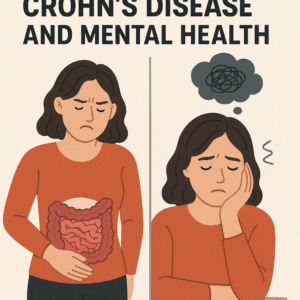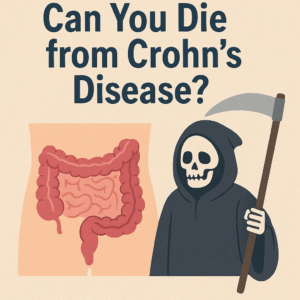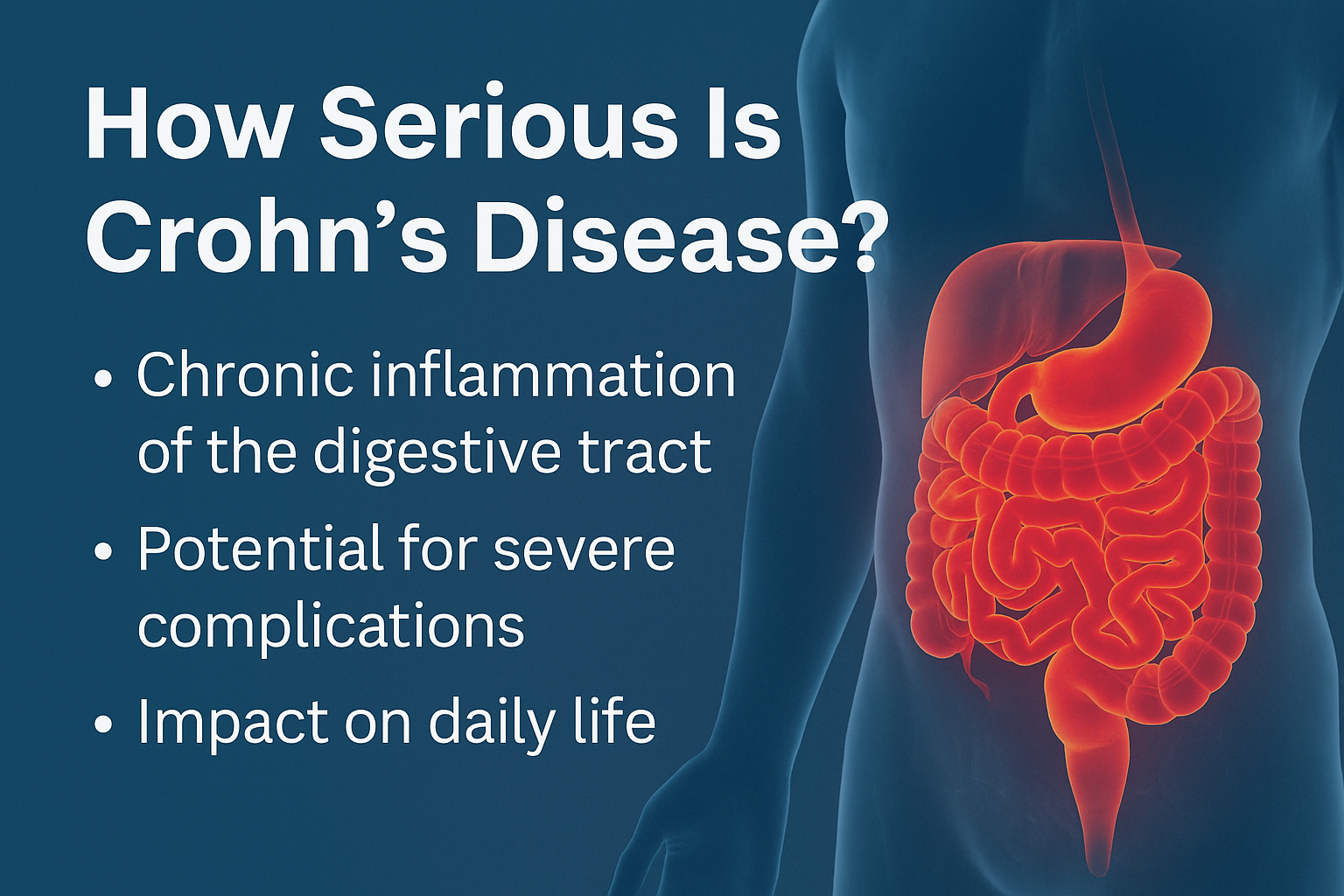Ever heard someone mention Crohn’s disease and wondered, “Just how serious is it?” You’re not alone. Crohn’s disease is a chronic, inflammatory bowel disease (IBD) that affects millions of people worldwide. It’s not just a “stomach problem”—it’s a complex condition that can turn someone’s life upside down. From unbearable pain to emotional distress, Crohn’s can be life-altering. But how bad can it get? Let’s break it all down in this detailed, no-fluff guide.
Understanding Crohn’s Disease
Definition and Overview
Crohn’s disease is a type of inflammatory bowel disease that causes inflammation anywhere along the gastrointestinal (GI) tract—from the mouth to the anus. It most commonly affects the end of the small intestine (the ileum) and the beginning of the colon. Unlike other forms of IBD, Crohn’s disease can affect all layers of the bowel wall.
Types of Crohn’s Disease
Ileocolitis
The most common form affects both the ileum and the colon.
Ileitis
Affects only the ileum. Can lead to abscesses and fistulas.
Gastroduodenal Crohn’s
Affects the stomach and the beginning of the small intestine.
Jejunoileitis
Patchy areas of inflammation in the upper half of the small intestine.
Crohn’s Colitis
Affects only the colon, often confused with ulcerative colitis.
Symptoms and Warning Signs
Common Symptoms
Persistent diarrhea
Abdominal pain and cramping
Fatigue
Weight loss
Fever
Severe and Chronic Symptoms
Bloody stools
Severe malnutrition
Joint pain
Skin conditions
Eye inflammation
Complications if Left Untreated
If ignored, Crohn’s can wreak havoc on your body. It may lead to:
Bowel obstructions
Ulcers
Fistulas (abnormal connections)
Anal fissures
Nutrient deficiencies
How Serious Is Crohn’s Disease?
Let’s be honest—Crohn’s is a lifelong battle. It’s not “just a stomach bug” or a mild inconvenience.
Chronic Nature of the Condition
Once you have it, you’re in it for the long haul. There’s no cure—only management.
Impact on Daily Life
Simple things like eating out, working, or traveling can become a nightmare. Flare-ups can be sudden and intense, making daily life unpredictable.
Risk of Severe Complications
- Intestinal Blockages
Scar tissue can cause blockages that might require surgery.
- Fistulas and Abscesses
Painful and dangerous. These may need surgical drainage or long-term antibiotics.
- Malnutrition
Due to poor absorption of nutrients. Weight loss and anemia are common.
- Colon Cancer Risk
Long-term inflammation increases the risk of colon cancer, especially with colonic involvement.
Crohn’s Disease and Mental Health
Depression and Anxiety in Patients
The unpredictability and discomfort can lead to serious mental health issues.
Social Isolation and Emotional Stress
People often withdraw from social settings due to embarrassment or fear of flare-ups.

Causes and Risk Factors
Genetic Links
If someone in your family has Crohn’s, your chances increase.
Environmental Factors
Smoking, diet, and even geography may play a role.
Lifestyle Triggers
High-stress levels and poor diet can worsen symptoms.
Diagnosis
- Diagnostic Tests and Procedures
Colonoscopy
MRI or CT enterography
Blood tests for inflammation
Stool tests
- Importance of Early Detection
The earlier it’s caught, the easier it is to manage and prevent severe damage.
Crohn’s Disease in Children and Teens
- Unique Challenges in Pediatric Cases
Delayed puberty, poor growth, and emotional struggles are common.
- Growth and Development Concerns
Children may require nutritional support and special care plans.
Is There a Cure for Crohn’s?
- Current Medical Understanding
No cure exists yet. But treatments can lead to long-term remission.
- Future of Treatment Research
Clinical trials are ongoing for stem cell therapy, gut microbiome treatments, and more advanced biologics.
Treatment Options
- Medications
Anti-inflammatories (e.g., mesalamine)
Immunosuppressants (azathioprine)
- Dietary and Lifestyle Changes
Low-residue diets
Probiotics
Anti-inflammatory foods
- Surgery and When It’s Needed
Bowel resection
Strictureplasty
Abscess drainage
Living with Crohn’s Disease
- Coping Mechanisms
Mindfulness and meditation
Therapy and support groups
- Diet and Nutrition Tips
Avoid dairy, spicy foods, and high-fiber foods during flares
Eat smaller, frequent meals
- Support Groups and Community Resources
Joining IBD forums and local support groups can provide valuable emotional support and advice.
Can You Die from Crohn’s Disease?
Mortality Rates and Risks
While most people don’t die from Crohn’s directly, complications like sepsis, cancer, or malnutrition can be fatal if ignored.
Managing the Disease for Longevity
With regular check-ups, a personalized care plan, and medication, people can live long, fulfilling lives.

Prevention and Risk Management
- Healthy Lifestyle Habits
Stop smoking
Stay active
Eat anti-inflammatory foods
- Managing Flare-Ups Early
Recognize early signs and adjust medications to avoid ER visits or surgery.
Real-Life Experiences
- Stories from Patients
Many people have turned their diagnosis into motivation—writing books, becoming advocates, and inspiring others.
- Inspiration and Hope
Crohn’s might be tough, but with the right approach, life doesn’t have to stop.
Conclusion
So, how serious is Crohn’s disease? In a word—very. But serious doesn’t mean hopeless. With the right treatment, lifestyle adjustments, and support, many individuals can effectively manage their condition. The key is early diagnosis, consistent care, and a fighting spirit. Whether you’re newly diagnosed or supporting someone with Crohn’s, knowledge is power—and you’ve just taken the first step toward mastering it.
FAQs
What foods trigger Crohn’s flare-ups?
Common culprits include dairy, spicy foods, caffeine, high-fiber vegetables, and alcohol.
Is Crohn’s disease considered a disability?
Yes, in severe cases, it can qualify as a disability due to its impact on daily life.
Can Crohn’s disease go into remission?
Yes, with proper treatment, many people experience long-term remission.
How often should someone with Crohn’s see a doctor?
Regular check-ups every 3-6 months are recommended, or more often during active flares.
Is Crohn’s more serious than ulcerative colitis?
Both are serious, but Crohn’s can affect more areas of the digestive tract and is often more complex to treat.

